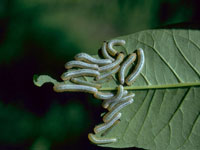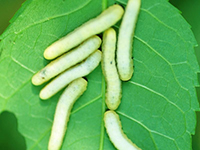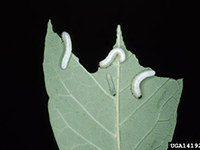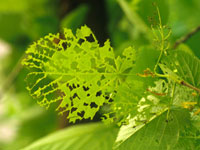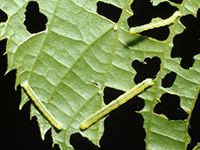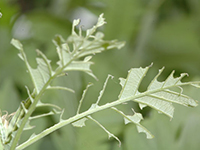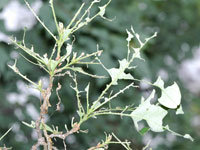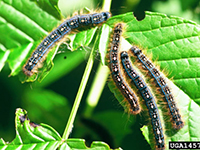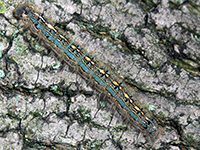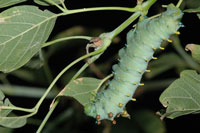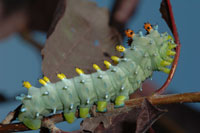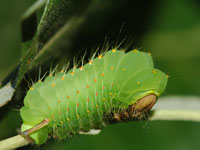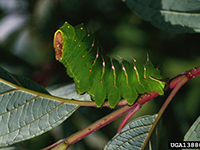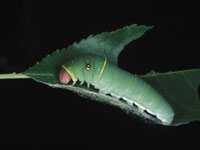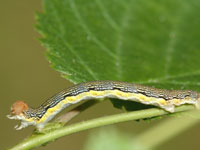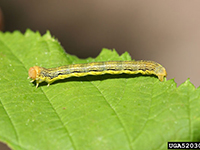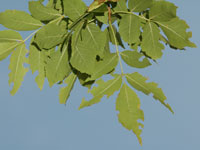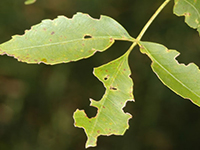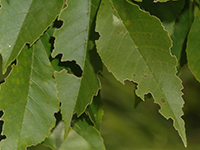Extension > Garden > Diagnose a problem > What's wrong with my plant? > Deciduous Trees > Ash > Holes in leaves or parts of leaves missing
Ash > Leaves > Holes in leaves or parts of leaves missing
1 of 8
Blackhead ash sawflies
- Occurs May and June
- Chews leaf tissue starting at tip and working its way back, leaving midveins
- Defoliation generally light to moderate, although can have potential to be severe
- Smooth-bodied, black head, white/yellow body; grows to about 3/4 inch long when full grown
- More information on Blackhead ash sawflies
2 of 8
Cankerworms (spring and fall)
- Occurs late April/early May until June
- Chews smalls holes between veins at first, later chewing leaf tissue except for major veins, and eventually chewing all of leaves except midvein
- Defoliation typically light to moderate, although it can potentially be severe
- Smooth-bodied, light green to brown, 2 inches long when fully grown; moves in characteristic looping motion
- More information on Cankerworms
3 of 8
Forest tent caterpillars
- Occurs May and June
- Chews entire sections of leaves, sometimes leaving some major veins; defoliation often severe
- Hairs along sides of body, blue and black with characteristic footprint shaped white markings on top of body
- More information on Forest tent caterpillars
4 of 8
Cecropia caterpillars
- Occurs August and September
- Chews entire sections of leaves; defoliation typically is minor
- Light green body with double row of reddish orange knobs on thorax behind head; also series of smaller yellow and blue knobs on abdomen; grows up to 4 inches long
- Becomes a large, attractive moth
- More information on Cecropia caterpillars
5 of 8
Polyphemus caterpillars
- Occurs August and September
- Chews entire sections of leaves; defoliation typically is minor
- It is pale green with sparse long hairs along top and sides of abdomen; grows up to 3 1/2 inches long
- Becomes a large, attractive moth
- More information on Polyphemus caterpillars
6 of 8
Tiger swallowtail caterpillars
- Occurs June to September
- Chews entire sections of leaves; defoliation typically is minor
- It is light green with a pair of blue, black, and yellow eyespots behind its head; smooth-bodied growing over two inches long
- Becomes an attractive butterfly
7 of 8
Linden loopers
- Occurs May and June
- Chews portions of leaves; defoliation typically is minor
- Smooth-bodied with reddish brown head, it is patterned black, gray, yellow, with a light colored underside; moves in characteristic looping motion
- More information on Linden Loopers
8 of 8
Emerald ash borers
- Chewing damage caused by adults occurs late May to early August
- Chews along the edges of leaves; defoliation is typically minor
- Slender bodied, 1/3 - 1/2 inch long; iridescent green with coppery colored head
- More information on Emerald ash borers



